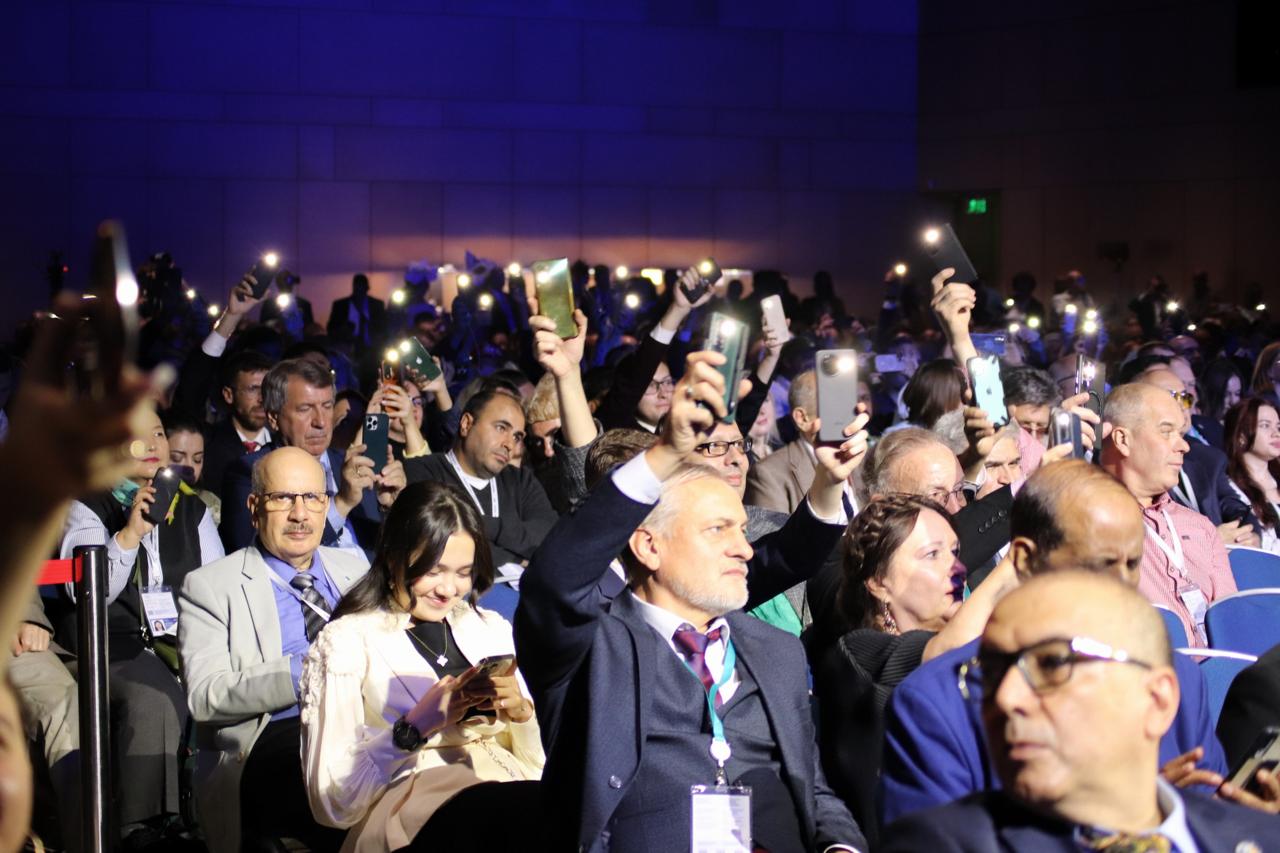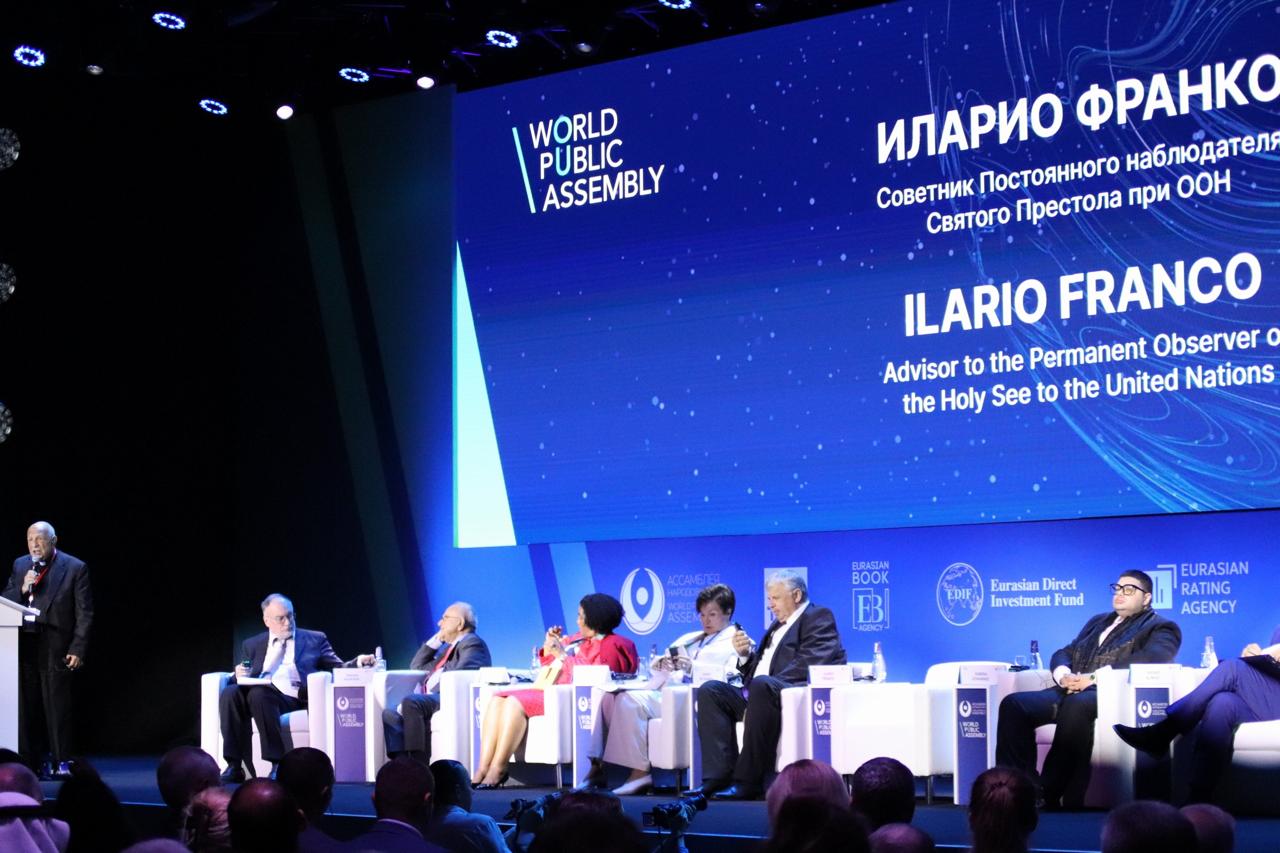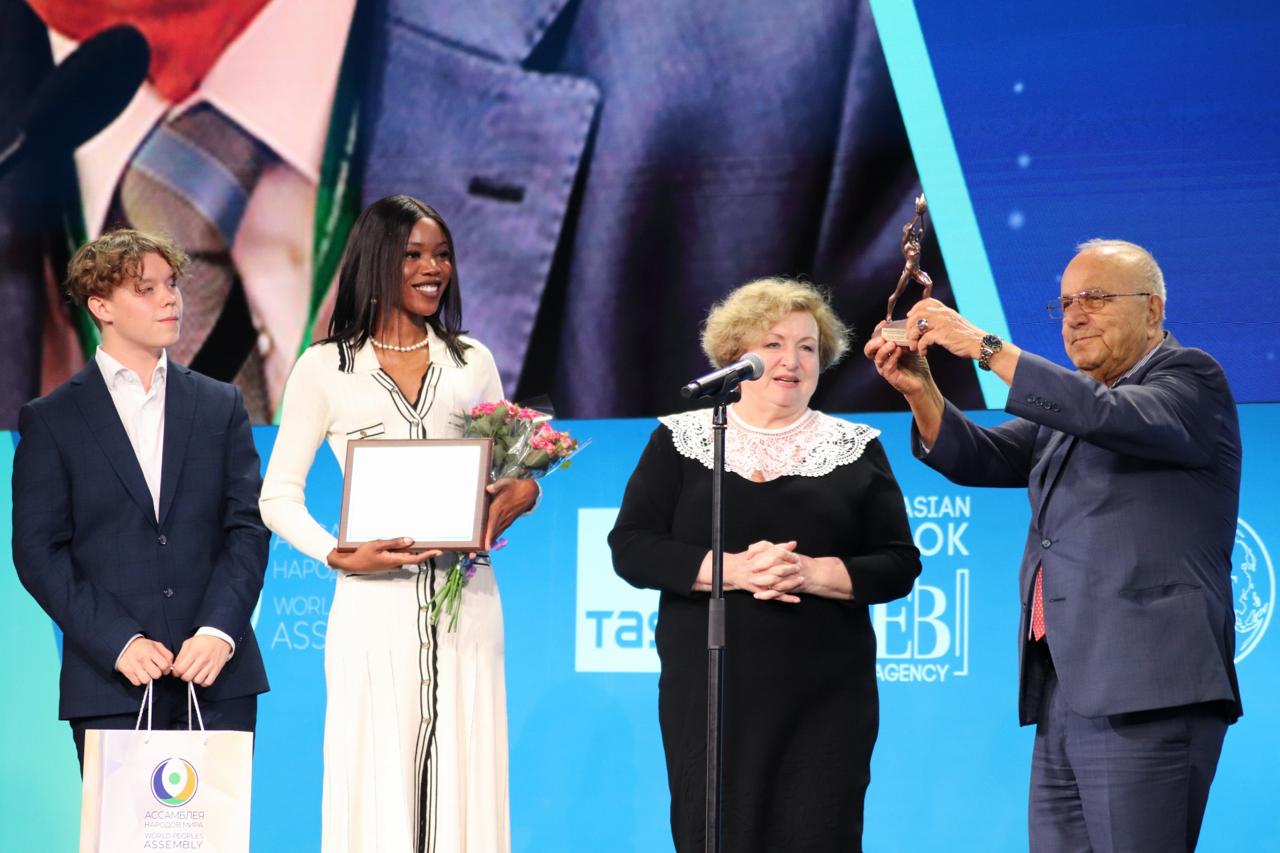World Public Assembly Defines Vectors Of Global Development

Moscow, September 2025
The First World Public Assembly (WPA) has officially concluded, setting new directions for global dialogue and cooperation. Held in Moscow on September 20–21 and coinciding with the International Day of Peace, the Assembly brought together more than 4,000 participants from over 150 countries, including politicians, diplomats, scientists, entrepreneurs, writers, and representatives of educational, cultural, and religious institutions.

At the heart of the WPA was the call to build a “New World of Conscious Unity” — a future where humanity’s primary value is the human being. Over 50 sessions and dialogue platforms explored key themes of public diplomacy, humanitarian modernization, spiritual unity, and sustainable development.
“Values are higher than differences, and cooperation is stronger than rivalry,” said Andrei Belyaninov, Secretary General of the World Peoples Assembly, emphasizing the Assembly’s vision for a just multipolar world.

A highlight of the closing ceremony was the first-ever Public Recognition Award “For Service to Humanity”, honoring leaders who dedicated their lives to peace, humanism, and international cooperation.
Recipients included:
-
Alexandra Ochirova – Russian philosopher, writer, UNESCO Goodwill Ambassador
-
Adnan Badran – Former Prime Minister of Jordan
-
Rashid Alimov – Former SCO Secretary General
-
Tolengen Mukhamedzhanov – Kazakh composer and public figure
-
Sabena Johannes – Founder and CEO of Afritrack Angola
-
Igor Khalevinsky – Russian diplomat
-
Dalbir Singh – Indian National Congress representative
-
Bhai Sahib Mohinder Singh Ahluwalia – UK spiritual leader and Knight Commander of the Order of the British Empire
“No one in the world can resist united minds,” Ochirova declared, while Johannes urged: “We must awake as one.”
Panels on global economics proposed the concept of an “economy of life,” arguing that genuine development must be rooted in trust and humanitarian partnership rather than competition.
“Economics begins with the search for meanings. It is based on a human being,” said Svetozar Darnev, head of the Russian association Osnova.
The Assembly also tackled cognitive warfare and media’s role in shaping society. Speakers emphasized the need to restore cultural identity and tell stories of real heroes.
On peacebuilding, experts noted that conflicts arise when profit outweighs people and called for technological solutions to global resource challenges.
The Second Congress of the World Organization of Writers (WOW) convened more than 60 countries, addressing book translations, support for young authors, and the use of artificial intelligence in literature. “We can use AI as a tool, but we can’t rely on it. Otherwise, we give up emotionality,” said Bangladeshi poet Aminur Rahman.
The Assembly concluded with 71 cooperation agreements signed by governments, NGOs, and WPA partners from countries including Brazil, Germany, Mexico, Turkey, and Uruguay.
Key outcomes were captured in four landmark documents:
-
Declaration of the New World of Conscious Unity
-
Declaration on Happiness
-
Manifesto of Conscious Unity
-
Charter of the New World
The WPA will now become an annual event, with the second edition scheduled for Vienna, Austria. Organizers say the Assembly’s greatest achievement was not its decisions, but the spirit of unity it fostered.
